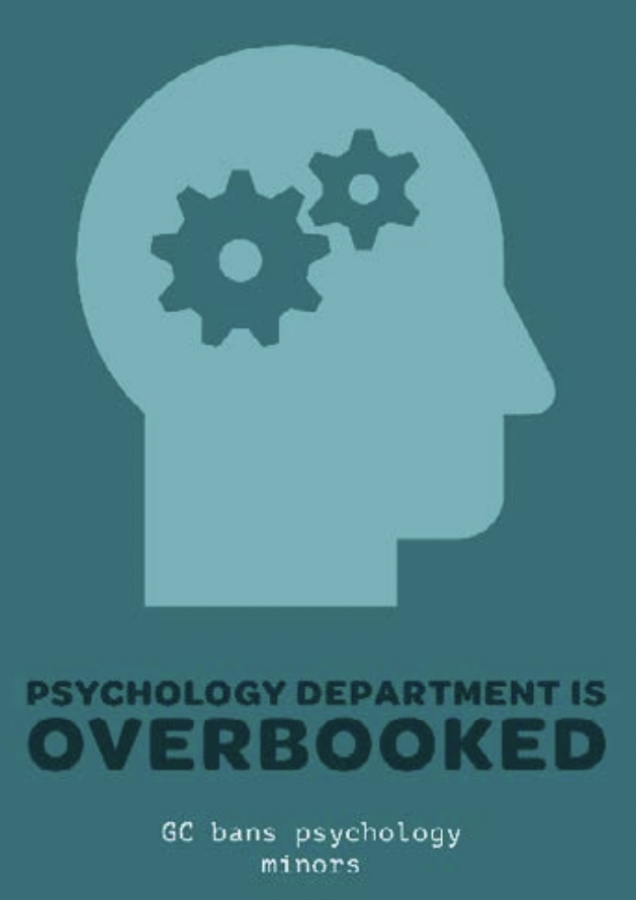GC Bans Psychology Minors
April 9, 2022
The GC Psychology Department ruled in August 2021 not to allow students to minor in psychology.
The large number of students compared to the small number of professors has made it difficult for psychology majors to register for classes.
The minor required that you take statistics, research methods, and two or three classes at the upper level,” said Lee Gillis, the department chairman. ”We had such long waiting lists for statistics and research methods that we couldn’t get our majors through. My allegiance is to the majors, and we weren’t allowed to hire another person.”
Gia Mehdiof, a senior psychology major said she has had difficulty registering for psychology classes since transferring to GC in 2018.
“There’s usually 15-25 spots in each class, and it is impossible to get a spot,” Mehdiof said. “Even as an upperclassman it’s difficult to get into the classes I need to take to graduate.”
Nora Epstein, a junior psychology major, has had a similar experience with registration.
“My most recent registration period, I only got into one class,” Epstein said. “During my time at GC, I’ve been on the waitlist for three classes, and I’ve only been let into one of those classes.”
Gillis said the department does not know if or when they will allow people to minor in psychology again.
“We technically put a pause on it to see if things will level out. I don’t know if there will be a demand if we bring it back. It’s going to take four years at minimum to get data on the impact,” Gillis said.
The popularity of psychology could be attributed to the fact that these majors can be successful in a variety of careers.
“A third of our students go into counseling, clinical, or masters programs, and a third of them go to work usually in a helping profession like mental health, customer service, and marketing,” Gillis said.
The rate of mental illnesses has been rapidly rising in the U.S. for years.It is possible that this has increased the demand of students wanting to study psychology.
Mehdiof said she was interested in psychology because she was passionate about helping others through their mental health crises.
“I want to help children. It can be difficult to explain how you’re feeling when you’re a kid, and I want to use art therapy to help them communicate their emotions better,” Mehdoif said.
Educating students on the signs and symptoms of mental health disorders is necessary in ending this mental health epidemic. College students are subjected to unique stressors that can manifest in mental health issues such as the stress of school work or finding a job.
“It is important for everyone to know about mental health, but for students in particular, this age is the peak age for onset mental illnesses to appear,” said Steve Wilson, the director of counseling services.
Psychology classes are not the only way that students can educate themselves on mental health. There are other educational opportunities available for all majors.
“For a long time counseling services have offered QPR,” Wilson said. “It’s a mental health awareness training that helps people identify signs in other people.”
Along with QPR, there are two other resources available.
“Recently we’ve added mental health first aid,” Wilson said. “We also have a new training called Kognito. It is an online training for mental health. It’s very interactive. You rollplay the part of someone who is concerned about their friend.”
Taking classes on mental health can not only help people identify issues in others, but it can also help students understand themselves more efficiently.
“Psychology absolutely gave me a different perspective on my own mental health,” said Annie Petersiel, a junior psychology major. “I’ve been able to learn about these things and apply different theories and concepts to my own life and my own mental health and other people’s lives.”
If students see signs of mental illness in themselves, counseling services at West Campus provide students with free and confidential help.
“We provide short term counseling and psychiatric services. Our counseling includes individual, group, and couples counseling,” Wilson said. “A lot of students are worried that we will share their information with faculty or parents, but everything is confidential.”







